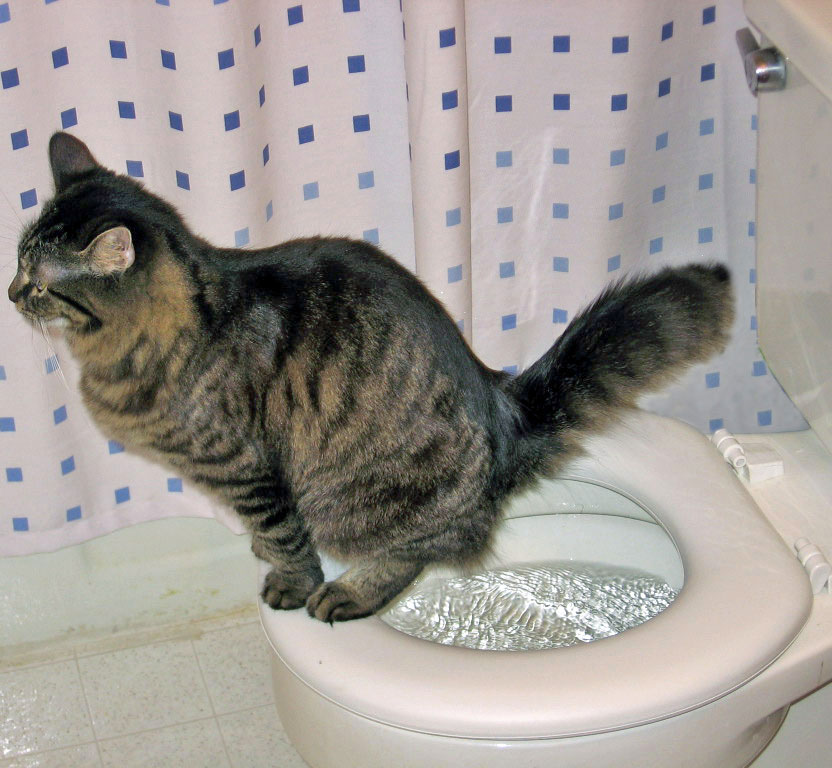We have uncovered this great article pertaining to How to Dispose of Cat Poop and Litter Without Plastic Bags listed below on the net and thought it made perfect sense to write about it with you over here.

Introduction
As feline owners, it's vital to be mindful of exactly how we dispose of our feline good friends' waste. While it might seem hassle-free to purge cat poop down the bathroom, this method can have detrimental repercussions for both the setting and human health.
Alternatives to Flushing
Luckily, there are safer and much more responsible methods to throw away pet cat poop. Consider the following options:
1. Scoop and Dispose in Trash
One of the most common technique of throwing away cat poop is to scoop it into a naturally degradable bag and toss it in the garbage. Make sure to utilize a specialized clutter inside story and throw away the waste without delay.
2. Usage Biodegradable Litter
Choose naturally degradable feline trash made from materials such as corn or wheat. These litters are environmentally friendly and can be securely thrown away in the garbage.
3. Bury in the Yard
If you have a lawn, consider burying pet cat waste in an assigned area away from vegetable gardens and water resources. Make certain to dig deep adequate to avoid contamination of groundwater.
4. Mount a Pet Waste Disposal System
Purchase a family pet garbage disposal system especially created for feline waste. These systems utilize enzymes to break down the waste, decreasing odor and ecological influence.
Wellness Risks
In addition to ecological problems, purging cat waste can also posture health and wellness dangers to humans. Pet cat feces might consist of Toxoplasma gondii, a parasite that can cause toxoplasmosis-- a possibly extreme disease, particularly for pregnant ladies and individuals with damaged body immune systems.
Environmental Impact
Flushing pet cat poop introduces hazardous microorganisms and bloodsuckers into the supply of water, posturing a considerable danger to marine ecological communities. These pollutants can negatively influence marine life and compromise water top quality.
Final thought
Liable pet dog possession prolongs past supplying food and sanctuary-- it likewise entails proper waste monitoring. By refraining from purging cat poop down the commode and choosing different disposal methods, we can decrease our ecological footprint and protect human health and wellness.
Why You Should Never Flush Cat Poop Down the Toilet
A rose by any other name might smell as sweet, but not all poop is created equal. Toilets, and our sewage systems, are designed for human excrement, not animal waste. It might seem like it couldn’t hurt to toss cat feces into the loo, but it’s not a good idea to flush cat poop in the toilet.
First and foremost, assuming your cat uses a litter box, any waste is going to have litter on it. And even the smallest amount of litter can wreak havoc on plumbing.
Over time, small amounts build up, filling up your septic system. Most litter sold today is clumping; it is made from a type of clay that hardens when it gets wet. Ever tried to scrape old clumps from the bottom of a litter box? You know just how cement-hard it can get!
Now imagine just a small clump of that stuck in your pipes. A simple de-clogger like Drano isn’t going to cut it. And that means it’s going to cost you big time to fix it.
Parasitic Contamination
Believe it or not, your healthy kitty may be harboring a nasty parasite. Only cats excrete Toxoplasma in their feces. Yet it rarely causes serious health issues in the cats that are infected. Most people will be fine too if infected. Only pregnant women and people with compromised immune systems are at risk. (If you’ve ever heard how women who are expecting are excused from litter cleaning duty, Toxoplasma is why.)
But other animals may have a problem if infected with the parasite. And human water treatment systems aren’t designed to handle it. As a result, the systems don’t remove the parasite before discharging wastewater into local waterways. Fish, shellfish, and other marine life — otters in particular — are susceptible to toxoplasma. If exposed, most will end up with brain damage and many will die.
Depending on the species of fish, they may end up on someone’s fish hook and, ultimately on someone’s dinner plate. If that someone has a chronic illness, they’re at risk.
Skip the Toilet Training
We know there are folks out there who like to toilet train their cats. And we give them props, it takes a lot of work. But thanks to the toxoplasma, it’s not a good idea.

I hope you enjoyed our part about How to Dispose of Cat Poop and Litter Without Plastic Bags. Thanks a ton for taking time to read through our posting. Are you aware of another person who is excited about the subject? Please feel free to promote it. Thanks a lot for your time invested reading it.
Book-Now